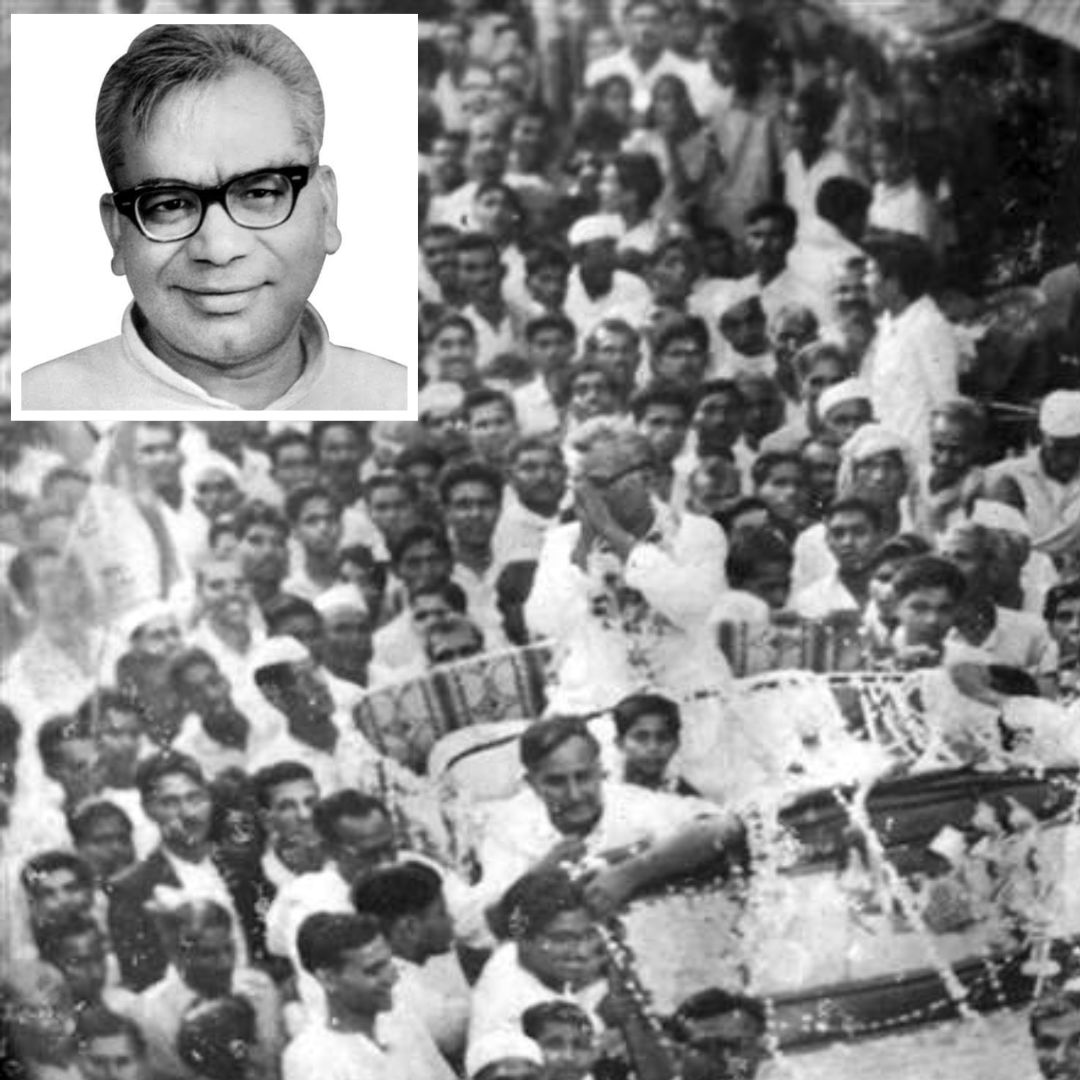Ram Manohar Lohia: Know How This Activist & Socialist Contributed To Indian Independence Movement
Writer: Ronit Kumar Singh
A confident and reliable journalist who always desires to toss the unheard voices. I cover politics and governance extensively through stories.
India, 12 Oct 2022 6:42 AM GMT
Editor : Shiva Chaudhary |
A post-graduate in Journalism and Mass Communication with relevant skills, specialising in content editing & writing. I believe in the precise dissemination of information based on facts to the public.
Creatives : Ronit Kumar Singh
A confident and reliable journalist who always desires to toss the unheard voices. I cover politics and governance extensively through stories.
Ram Manohar Lohia, born in Akbarpur, Uttar Pradesh, was an activist in the Indian Independence Movement. He became one of the leading figures of the Central Directorate who organised the Quit India revolt.
The Indian Independence Movement has seen many activists making immense contributions to develop India as an independent nation with its constitutional values and culture. One among them was Ram Manohar Lohia, a socialist political leader and an activist who used to work in with Congress Radio which was broadcast secretly from Bombay (now Mumbai) until 1942.
Early Life & Education
Lohia was born on March 23, 1910 at Akbarpur, Uttar Pradesh to Hiralal (father). He was raised by his father and a lady from the Barber community, as his mother died when he was two years old. He completed his primary education and attended Banaras Hindu University to complete his intermediate during the 1920s.
He attended the Humboldt University of Berlin, Germany, to convey his dim view of British ideology and philosophy. Due to his excellent academic performance, he received financial support to study the national economy as his primary subject as a doctoral student. Interestingly, he wrote his thesis paper on 'Salt Taxation in India', focusing on the socioeconomic theory of Gandhi and revealing several hidden facts.
Contribution To Indian Independence Movement
As a socialist and an editor of Congress Socialist, he became one of the founders of the Congress Socialist Party (CSP). Later, Jawaharlal Nehru selected him as the secretary of the Foreign Department of the All India Congress Committee (AICC). Being an active member of the CSP, he left the position in the AICC in 1938.
For his anti-war speeches in 1940, he was arrested by the British forces and received a jail term of two years. He started developing his idea of freedom from colonial rule. In 1942, he became a prominent figure in the Central Directorate which organised the Quit India movement led by Mahatama Gandhi, suggests Wikipedia. Together with Jayaprakash Narayan, he was one of the last high-security prisoners in the Lahore Fort after being captured by the British government in 1946.
Entering Politics With His Socialist Party
Being a socialist political leader with mass connections, he left Congress when CSP was founded. Later, the party was merged with the Kisan Majdoor Praja Party to form a new Praja Socialist Party. Unhappy with the values of the new party, Lohia left and founded his Socialist Party in 1956. He lost to Jawaharlal Nehru in the Phulpur general elections of 1962. Later he won back-to-back Lok Sabha seats from the Kannauj constituency and other districts.
He is popularly known for his contribution as an author in India. Some of his writings, including The Caste System, India, China, Northern Frontiers, Marx-Gandhi, and Socialism, were widely regarded as the finest. Later, the Karnataka government translated all his books and published them in six volumes. In the state-run libraries and stores, it's still sold at a subsidised rate.
 All section
All section















